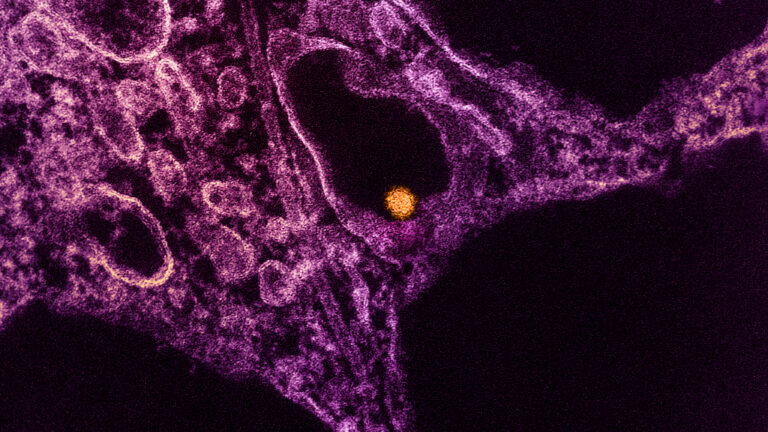first opinion
What happened when this doctor's mother got West Nile

NIAID/Wikimedia Commons
Christopher Hartnick, a head and neck doctor in Boston, knows that you're supposed to look for common causes of sickness before flipping to the pages in the textbook that cover the more far-flung possibilities. So when his mother started getting sick, he thought she may have had a stroke. But then her speech began to slur and her blood pressure fell.
It took a week to identify the problem as West Nile virus. Hartnick's mother eventually began to recover, slowly, but one symptom dogged her: "I feel like someone else," she told her son. "I don't feel like me." An infectious disease colleague of Hartnick's confirmed that this is, in fact, a well-known experience for West Nile patients. Read more in his First Opinion essay about the experience.
INJURY
Former football players who thought they had CTE saw increased suicidality
Chronic traumatic encephalopathy — the brain disorder caused by repeated head injuries and more commonly known by its acronym, CTE — can only be diagnosed via an autopsy after somebody dies. But even if someone doesn't know they have the condition, they may feel like they do, dealing with symptoms like memory loss, impaired judgment, aggression, depression, and more.
A survey of more than 4,100 former football players who had a professional contract between 1960-2020 found that 34% perceived themselves to have CTE, according to a study published yesterday in JAMA Neurology. The researchers found that these men were twice as likely to report dealing with suicidality as those who didn't think they had CTE. The data could be helpful in detecting suicidality among former football players and getting them help, the study authors wrote.
If you or someone you know may be considering suicide, contact the 988 Suicide & Crisis Lifeline: call or text 988 or chat 988lifeline.org. For TTY users: Use your preferred relay service or dial 711 then 988.
climate
Q&A: Rachel Levine on blood shortages, climate change, and gender-affirming care
You may have heard there was a blood shortage this summer. There's always a seasonal ebb and flow to blood donations, but experts also say climate change can have an effect, with extreme heat and worsening storms in certain regions keeping people away from blood banks.
To understand more about the shortage, I spoke with Adm. Rachel Levine, the assistant secretary for health at the Department of Health and Human Services. Levine's office is working to raise awareness of the importance of blood donation and the threat that climate change poses to health more broadly. In a Q&A, Levine spoke about how climate change can impact public health and responded to a critique published in First Opinion last month that her office has not taken enough regulatory action in that arena. We also spoke about how gender-affirming care has become even more politicized since we last spoke two years ago. Read more.


No comments